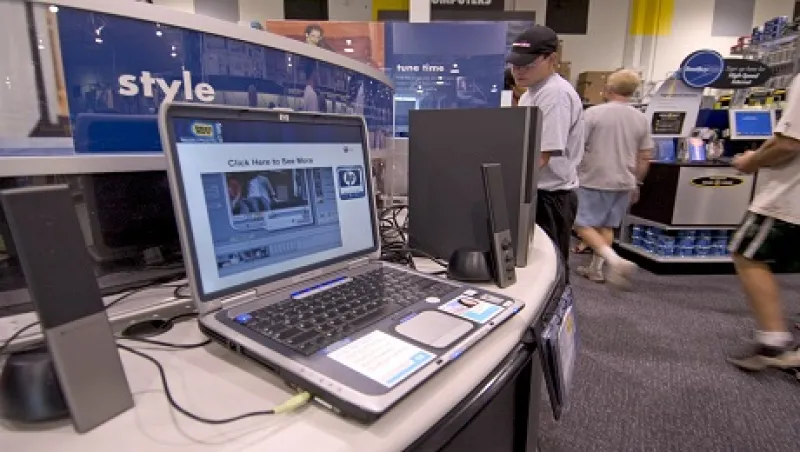When Hewlett-Packard Co. is discussed in the media, it is portrayed as a PC company. On the surface, that makes sense: HP is the largest PC maker in the world, and personal computers are 30 percent of its revenue. But — and this is a very important but — PCs today represent only 10 percent of HP’s operating profits. Also, despite current conventional wisdom, PCs, unlike IBM Corp.’s mainframes in 1993, are not going away.
A few years ago, when Apple co-founder Steve Jobs was asked about his vision for the tablets and PCs of the future, he said they reminded him of cars and trucks: We need both, but there are more cars on the road than trucks. Steve was right, but success or failure will come down to how big the total market for personal devices (irrespective of form factor) will be and what the mix between PCs/notebooks and tablets will be.
The tablet is a terrific tool for consuming information — reading e-mail, watching movies, communicating on Skype, playing games — but its form factor limits it as an effective productivity device. Large screens, a mouse, high computing power, multitasking and multiple windows open at once are the features for which we’ll still need PCs.
Tablets will be taking market share from PCs and notebooks in the consumer market, where information is mostly absorbed, not created. But according to technology research firm Gartner, consumers represent only 26 percent of total desktop and notebook sales. Tablets will have a much smaller impact on business users because businesses employ PCs as productivity devices.
Look around you: You probably have a tablet sitting on your desk, but you probably still do most of your productive content-creation work on a PC. Once I left my Dell notebook at home and took my iPad on a business trip. As much as I love my iPad, I felt paralyzed — I could not run my spreadsheets or edit my PowerPoint presentation (doing it on the iPad’s touch screen was a nightmare). Now when I travel, I always take along both my iPad and my notebook computer.
In some business areas tablets will take market share from PCs and notebooks. For instance, nurses in hospitals will be using tablets to interface with patients, and police officers will be able to use tablets instead of bulky laptops in their cruisers. At the same time, the whole computing market will grow because cash registers will be using tablets instead of clumsy, dumb non-PC terminals.
There is talk of hybrids — I guess Jobs would probably call them SUVs: devices that combine the notebook and tablet. Microsoft Corp.’s Surface is an entrant in this space, but so far it has not been successful. HP’s forthcoming failure in tablets is presumed as a certainty, based on the company’s poor track record in this area, but I wouldn’t bet the farm on it. I would not completely rule out tablet success, especially if CEO Meg Whitman can resuscitate HP’s famed R&D.
PC and (especially) notebook sales will likely reset to a new, lower level, but their demise, just like the predicted extinction of mainframes in 1993, has been grossly exaggerated. They are too important to the completion of productivity tasks to go away.
Also, the recent decline in PC sales has been significantly affected by Microsoft’s Windows 8. In the past, introduction of a new Windows version drove the upgrade cycle and PC sales. This time around, the opposite has happened. Windows 8 is very intuitive if you have a tablet or a PC with a touch screen (few of us have those), but the new interface is very confusing to most people who still use a mouse and keyboard. It is simply a horrible product for PCs.
Windows 8 is hated so much that there are well-substantiated rumors that Microsoft will come out with Windows Blue (Windows 8 fixed) this summer — two years before you’d expect to see the next version of the operating system. Windows 8 has been turning people off from upgrading their PCs, but this will change once it is fixed.
It is also important to understand that HP’s PC business, for the most part, doesn’t make anything. HP simply designs a PC and then outsources assembly to a company in Asia that uses commoditized hardware created and developed by other companies. HP, just like Dell, is a distribution and marketing company. This is important because its PC business has a very high return on capital and very low fixed costs, so even if it is reset to a lower level, HP can still remain very profitable.
Vitaliy Katsenelson (vk@imausa.com) is CIO at Investment Management Associates in Denver and author of The Little Book of Sideways Markets.
See related story: No Kodak Moment for Hewlett-Packard






